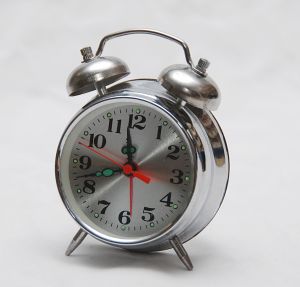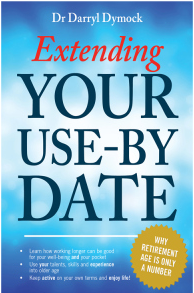Have you got a used-by-date?

 Isobel hadn’t done much planning for her retirement, but thought she’d retire from her full-time receptionist job the day she turned 60. When that target age came, however, she changed her mind. ‘I felt there were still things that I needed to do,’ she says, ‘that I still had quite a bit to offer in the workforce, even though I’d passed “retirement age”.’
Isobel hadn’t done much planning for her retirement, but thought she’d retire from her full-time receptionist job the day she turned 60. When that target age came, however, she changed her mind. ‘I felt there were still things that I needed to do,’ she says, ‘that I still had quite a bit to offer in the workforce, even though I’d passed “retirement age”.’
Isobel is not alone in deciding to work on. According to a recent survey by the Australian Bureau of Statistics, more than one million mature-age Australians are likely to continue working into older age, with around 650,000 of these planning never to retire. I know I’m one of those older workers in that ‘never retire’ category, but I didn’t realise how many others felt they hadn’t reached their use-by date.
When I looked in the bookstores, however, all I could see were books about how to prepare FOR your retirement (many related to financial planning), or what to do AFTER your retirement. There wasn’t anything about how NOT to retire. So, I decided to fill the gap, and wrote Extending your use-by date: why retirement age is only a number, which was published as an e-book in March 2013.
I decided that firstly I would find some people who were continuing to work in various ways and tell their stories. And I didn’t have to look very far. I knew people, those people knew other people, and so it went. Along the way I picked up other examples from people I met, from the media and online. I found that while some people are forced to work on for financial reasons, many are staying at work because it also provides mental stimulation, social contact, self-esteem, and a sense of purpose. Isobel’s is one of the stories I tell in the book. When she finished full-time work, she took on two part-time jobs and also volunteers half a day a week.
Others in the book tell how they’ve continued to work in various ways, or they’ve volunteered their services. Sam, a computer technician I interviewed, told me: ‘I’d hate to be on my death bed and thinking, bugger, I wish I’d done so and so, had the guts to do something. So maybe that’s what I’m trying to avoid, that last gasp, and thinking, you know, wish I’d done something.’
Among the reasons older people are not as fixed in their ideas about retirement as they used to be are that they are generally staying healthier and living longer, so there’s more time to keep working – if you want to. In Australia, life expectancies are among the highest in the world: boys can expect on average to live to 79 (compared to around 55 a century before), and girls to 84 (as against 59 a century earlier). Regrettably, these figures are nowhere near as high for Australia’s indigenous population.
For the majority, however, on average the odds are even slightly better if you survive to the age of 60. You need to take individual factors into account, of course, so the particular age you shuffle off this mortal coil may be different from the norm. Nevertheless, with many Australians living into their 80s and beyond, you need to decide what to do with the rest of your life, to the extent it’s within your control.
Some people can’t wait to retire – they’re worn out, they’ve been working for years, they reckon it’s time to do something for themselves for a change, and finally perhaps they can afford to. A few just can’t go on physically and sometimes emotionally. And fair enough – there’s no sense in flogging yourself if your heart’s not in it or your body won’t cooperate, or you have better things to do.
As the ABS survey shows, however, many others aren’t ready to retire yet. Tougher economic times have pushed some people into staying at work, but others just want to keep working, for a variety of reasons, not always financial. Others would like to cut down the number of hours they work, or perhaps move into a different line of work (an encore career), even set up their own business.
The basis for Extending your use-by date is that we sometimes head unthinkingly into retirement at a time when we are living longer than ever, and when we have developed skills and abilities we can keep on using. There is also research to suggest that continuing to work can maintain our well being as well as add to our bank balance. Apart from the financial gain, volunteering may bring similar benefits.
Not everyone wants to continue working, not everyone can continue; some are forced into retiring, while discrimination prevents others from returning to employment. Even volunteering may be difficult for some people. Whatever our circumstances, however, I believe we should resist someone else telling us we’ve reached our use-by date. What do you think?
Darryl Dymock is the author of Extending your use-by date: why retirement age is only a number and we are very excited to be working with him in the future.
photo: hisks









 Proudly Australian owned and operated
Proudly Australian owned and operated